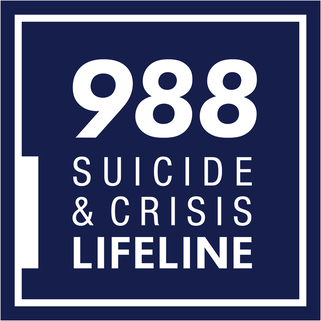|
It is commonly held that stress is unhealthy. Health professionals have consistently maintained that stress contributes to a myriad of illnesses that range from the common cold and insomnia to cardiovascular disease and cancer. More recent research, however, suggests that stress may not be a completely bad thing, in fact, in some instances it may be healthy.
In 1998, evidence began to emerge that our understanding of stress was less straightforward than previously thought. Abiola Keller and her colleagues conducted a survey of 30,000 people and then tracked them for 8 years. The survey consisted of two primary questions: “How much stress have you experienced in the last year?” and “Do you believe that stress is harmful to your health?”. Eight years later, they reviewed public records to find out who among those 30,000 had died. Based on their findings they determined that high levels of stress increased a person’s chance of premature death by 43% but only if they believed that stress was harmful to their health. People who reported high stress but did not believe it affected their health had the lowest risk of death of all the people who participated in the study, lower than even those who reported low to moderate levels of stress. The conclusions of the study were that stress alone was a poor predictor of premature death. People also had to believe stress contributes to poor health. The conventional view of stress is that it elicits a fight or flight response. When this response is experienced the body readies itself for some type of action-oriented response to this danger. Adrenaline is released, heart rate increases and breathing accelerates and deepens, blood vessels in the muscles dilate while other blood vessels constrict, digestion ceases and the sensory system becomes heightened. This response was intended for survival and was adaptive when people were confronted with the real danger of imminent death or severe injury. In modern times people experience a fight or flight response for events which while stressful do not reach the level of true survival. This type of stress, when regularly experienced, is believed to contribute to health concerns. Keller’s findings suggest that your mindset about stress also matters and there are health benefits related to adopting a more positive attitude about stress. Psychologist and researcher Alia Crum offers a three-step approach to adopting a positive attitude towards stress: • First, acknowledge the presence of stress when you experience it and think about the ways it is impacting you both psychologically and physically. • Second, recognize that when stress occurs it is typically a response related to something you care about. Connect to the positive motivations that are also present in your stress response. • Third, when stress is present, the body generates an increase in energy. Figure out ways to make productive use of that energy. It is generally believed that stress elicits only fight or flight responses, however, other types of stress have been identified, each with a unique physiological profile that motivates different strategies for coping. In contrast to the fight or flight response, these types of stress responses are viewed as beneficial to not only physical health but also mental functioning. The challenge response results in a similar physical responses to that of the fight or flight response. Heart rate increases, breathing deepens and there is an increase in energy to improve performance. But there are differences. The hormone DHEA, which helps people thrive under stress, is released, the mind is more alert and instead of feeling fearful the individual feels focused. The challenge response has been shown to increase self-confidence and helps a person learn from experience. People who are completely absorbed in what they are doing display signs of experiencing a challenge response. Another type of stress has been dubbed the tend and befriend response. This stress response motivates people to protect the people and communities they care about. This type of stress response if driven by oxytocin, a hormone that motivates people to connect with others. Oxytocin dampens fears and promotes courage and bravery. It strengthens social connections and helps people be more responsive to the needs of others. The tend and befriend response was most likely the stress response that was in play with the heroic efforts and willingness to come to the aid of victims of the 911 terrorist attack. While some forms of stress have adverse health effects it is important to remember that all forms of stress have a function whether for survival, or to help achieve goals, or to protect our loved ones or to help others in need or to make social connections. Kelly McGonigal writes, “The stress response is more than a basic survival instinct. It is built into how humans operate, how we relate to one another and how we navigate our place in the world. When we understand this, the stress response is no longer something to be feared. It is something to be appreciated, harnessed, and even trusted.”
0 Comments
Leave a Reply. |
|
Please DO NOT use this email address for medication refill requests or for emergency situations.
Click here for refill requests instead of using email: Medication Refill Request Form If you have a medical emergency, email is never the appropriate way to communicate your needs, and you should instead call 911 or go to the nearest ER. If you are having suicidal thoughts and need to speak to someone immediately, you can contact Suicide Prevention Hotline at the number (and link) below. [email protected]
Communications via email are not secure. Although it is unlikely, there is a possibility that the information you include in an email can be intercepted and read by other parties besides the person to whom it is addressed. |
|
2024 Providers for Healthy Living | All Rights Reserved
|

